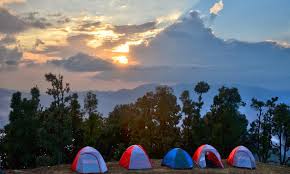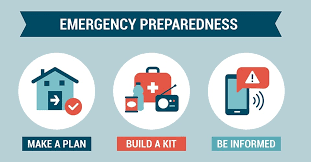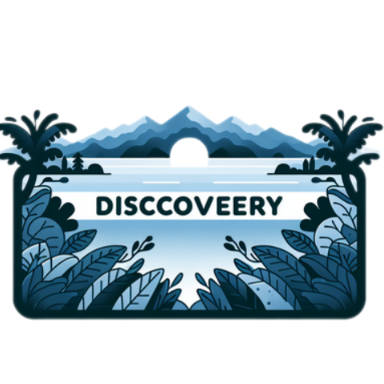Camping is a cherished outdoor activity that offers a unique opportunity to connect with nature, enjoy fresh air, and escape the hustle and bustle of daily life. As we approach 2024, it’s crucial to stay updated on the best practices for ensuring a safe and enjoyable camping experience. Whether you’re a seasoned camper or a first-timer, these essential tips will help you make the most of your outdoor adventure.
1. Plan Ahead and Choose the Right Campsite

Research and Reservation: Before heading out, research potential campsites that fit your preferences and needs. Many popular campgrounds require reservations well in advance, especially during peak seasons. Websites like Recreation.gov or ReserveAmerica can help you find and book sites.
Consider Your Needs: Think about what amenities and features you need. Do you prefer a site with easy access to hiking trails, or are you looking for a more remote experience? Make sure to check for available facilities such as restrooms, water sources, and fire pits.
Check the Weather: Always check the weather forecast before your trip. Knowing the weather conditions can help you prepare appropriate gear and avoid dangerous situations like flash floods or extreme temperatures.
2. Pack Smart with Essential Gear
Shelter and Sleeping: A reliable tent is crucial for a comfortable camping experience. Ensure your tent is appropriate for the weather conditions and the size of your group. Don’t forget a quality sleeping bag and a sleeping pad for insulation and comfort.
Clothing: Pack layers of clothing to adapt to changing temperatures. Include moisture-wicking base layers, insulating layers, and a waterproof outer layer. Always have extra socks and underwear.
Cooking and Food: Bring a portable stove, cooking utensils, and food that’s easy to prepare and store. Pack non-perishable items and plan meals ahead of time. Don’t forget to bring a cooler with ice packs for perishables and bear-proof containers if camping in wildlife areas.
Safety Gear: Include a first-aid kit, a multi-tool or knife, and a flashlight or headlamp with extra batteries. A fire starter kit and a whistle can also be handy in emergency situations.
3. Practice Leave No Trace Principles
Respect the Environment: Follow the Leave No Trace principles to minimize your impact on the environment. This includes packing out all your trash, avoiding picking plants or disturbing wildlife, and staying on established trails.
Proper Waste Disposal: Use established toilet facilities or portable toilets if available. If not, follow the guidelines for digging a cat hole at least 6 to 8 inches deep and 200 feet away from water sources.
Campfire Safety: Use established fire rings or fire pits if available. Keep fires small and manageable, and always fully extinguish them before leaving or going to sleep. In some areas, campfires may be restricted due to fire danger, so be sure to check local regulations.
4. Stay Safe and Prepared

Know the Area: Familiarize yourself with the local wildlife and potential hazards in the area. Understand what to do if you encounter animals such as bears or snakes.
Navigation: Carry a map and compass or a GPS device to help with navigation. Don’t rely solely on your phone’s GPS, as signal reception may be unreliable in remote areas.
Emergency Preparedness: Have a plan in place for emergencies. Share your trip details with a friend or family member, including your expected return time. Familiarize yourself with the nearest medical facilities or emergency services.
Stay Hydrated and Nourished: Bring plenty of water and a water purification method, such as a filter or purification tablets. Staying hydrated and well-fed is crucial for maintaining energy and preventing health issues.
5. Enjoy the Camping Experience
Outdoor Activities: Take advantage of the natural surroundings by engaging in activities such as hiking, fishing, or stargazing. Plan some activities ahead of time and bring the necessary gear for them.
Relax and Unwind: Camping is also about relaxation. Take time to enjoy the tranquility of nature, read a book, or simply sit by the campfire and appreciate the beauty around you.
Connect with Fellow Campers: If you’re camping in a group site or campground, take the opportunity to socialize with fellow campers. Sharing experiences and tips can enhance your overall camping experience.
6. Be Mindful of Health and Safety
Sun Protection: Protect yourself from sun exposure by wearing sunscreen, a hat, and sunglasses. Sunburns can ruin a camping trip, so take precautions even on cloudy days.
Insect Protection: Use insect repellent to protect against mosquitoes and other pests. Wearing long sleeves and pants can also help reduce insect bites.
Stay Active: While it’s tempting to lounge around, staying active helps you stay warm and keeps your energy levels up. Engage in light exercises or go for walks around the campsite.
7. Prepare for Changing Conditions
Weather Readiness: Be prepared for sudden weather changes by packing a variety of clothing and gear. A lightweight, waterproof jacket and an emergency blanket can be lifesavers in unpredictable conditions.
Adapt to Terrain: Different terrains may require specific gear or adjustments. For example, if camping in a mountainous area, ensure your tent is staked securely and consider a tent with a vestibule for extra gear storage.
Flexibility: Stay flexible with your plans. Sometimes weather or other conditions may require changes to your itinerary. Being adaptable ensures that you can still have an enjoyable trip even if things don’t go exactly as planned.
8. Document and Share Your Experience

Photography: Capture the beauty of your surroundings with a camera or smartphone. Photographing landscapes, wildlife, and your camping setup can help you remember your trip and share it with others.
Journaling: Keep a journal of your experiences, including what you enjoyed, any challenges you faced, and tips for future trips. Journaling can be a great way to reflect on your adventure and improve your camping skills.
Share Tips: After your trip, consider sharing your experiences and tips with fellow campers or on social media. Your insights can help others have a successful and enjoyable camping experience.
Conclusion
With careful planning, smart packing, and a commitment to safety and environmental responsibility, you can ensure a memorable and enjoyable camping trip in 2024. Embrace the beauty of nature, connect with fellow adventurers, and create lasting memories under the stars. By following these best camping tips, you’ll be well-prepared to make the most of your outdoor adventure and enjoy the great outdoors to the fullest. Happy camping!




